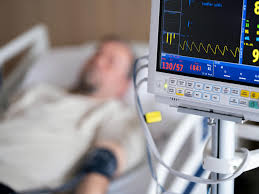When it comes to heart health, technology is on your side. Cardiologists today rely on advanced tools and techniques to monitor, analyze, and safeguard your heart’s well-being. With innovations ranging from traditional diagnostic tests to wearable devices, modern technology provides more effective and personalized care. Understanding how cardiologists use these tools can empower you to take a proactive approach to your heart health.
What Tools Do Cardiologists Use to Monitor Heart Health
Cardiologists have access to a wide range of cutting-edge tools that enhance heart monitoring and diagnosis. Some prominent examples include:
- Electrocardiograms (ECGs): Electrocardiograms are a staple in cardiovascular care. These machines measure the heart’s electrical activity and detect irregular rhythms, commonly known as arrhythmias. They’re quick, non-invasive, and widely used in clinics and hospitals.
- Holter Monitors: These portable devices are like an extended ECG that you wear for 24 to 48 hours. They track your heart’s activity over a more extended period, revealing irregularities that might not show up during a standard ECG test.
- Echocardiography: By using ultrasounds, echocardiography provides a detailed image of the heart. It allows cardiologists to assess how well your heart pumps blood and detect structural issues, such as valve problems or heart muscle abnormalities.
- Cardiac MRI and CT Scans: Advanced imaging techniques like magnetic resonance imaging (MRI) and computed tomography (CT) scanning provide a 3D view of your heart and surrounding blood vessels. These tools are invaluable for detecting complex conditions such as coronary artery disease or congenital heart defects.
By integrating these tools with digital platforms, a cardiologist can collect and analyze data more efficiently than ever before. This means quicker diagnostics and more accurate treatment plans tailored to each patient’s needs.
Which Heart Tests Are Most Commonly Used by Cardiologists Today
Cardiologists rely on a series of tests to diagnose and monitor heart health. Here are some of the most commonly used ones today, along with their benefits in helping to maintain a healthy heart.
- Stress Tests: Stress tests evaluate how your heart performs under physical exertion. By monitoring your heart’s activity while you walk or run on a treadmill, a cardiologist can detect symptoms of coronary artery disease or other issues that may not be evident at rest.
- Blood Tests: Cardiologists often request lipid profiles to monitor cholesterol and triglyceride levels. High levels of these fats can increase your risk of heart disease. Other blood tests may check for markers of inflammation, which can indicate stress to your heart.
- Blood Pressure Monitoring: This routine test measures the force of blood pushing against your arteries. Elevated blood pressure can strain the heart and is widely recognized as a key risk factor for heart disease.
- Angiography: This more invasive procedure involves injecting dye into your arteries to identify blockages or narrowing. Through angiography, cardiologists can pinpoint and treat cardiovascular issues.
Each of these tests provides invaluable data, forming the backbone of effective treatment and prevention strategies.
Can Wearable Devices Help Cardiologists Track Your Heart Health
The rise of wearable tech has transformed how cardiologists monitor heart health outside the clinic. From fitness trackers to advanced medical-grade devices, these tools enable real-time tracking of heart activity. Many wearables come equipped with sensors to measure heart rate and rhythm, with some even capable of detecting irregularities such as atrial fibrillation. They often monitor metrics like blood oxygen levels and breathing patterns, offering early insights into potential cardiac concerns.
One of the biggest advantages of wearable technology is its ability to collect consistent, long-term data. This allows cardiologists to identify patterns and evaluate how factors like exercise, stress, or sleep impact heart health over time. While these devices aren’t a replacement for medical-grade tools, they provide an extra layer of valuable information that helps both doctors and patients stay proactive about heart health, potentially addressing issues before they escalate.
Consult a Specialist
Your heart is the engine that keeps you moving, and investing in its health is one of the best decisions you can make. From state-of-the-art diagnostic tools to convenient wearable devices, cardiologists have more resources than ever to verify your heart stays healthy.Schedule a consultation with a cardiologist and start prioritizing your heart health.
- When to See a Foot and Ankle Surgeon
- Top Benefits of Visiting a Vein Clinic for Early Treatment of Vein Issues
- The Intersection of Gynecology and Endometriosis Treatment
- Regenerative Orthopedics for Post-Surgery Healing
- The Role of Pain Management in Living with Chronic Pain
